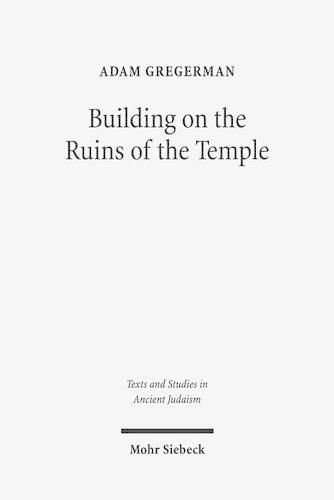Readings Newsletter
Become a Readings Member to make your shopping experience even easier.
Sign in or sign up for free!
You’re not far away from qualifying for FREE standard shipping within Australia
You’ve qualified for FREE standard shipping within Australia
The cart is loading…






In the immediate centuries after the Romans’ destruction of Jerusalem and its Temple in 70 CE, Jews and Christians offered contrasting religious explanations for the razing of the locus of God’s presence on earth. Adam Gregerman analyzes the views found in three early Christian texts (Justin’s Dialogue with Trypho, Origen’s Contra Celsum, and Eusebius’ Proof of the Gospel) and one rabbinic text (the Midrash on Lamentations), all of which emerged in the same place - the land of Israel - and around the same time -the first few centuries after 70. The author explores the ways they interpret the destruction in order to prove (in the case of Christians), or make it impossible to disprove (in the case of the Jews) that their community is the people of God. He demonstrates the apologetic and polemical functions of selected explanations, for claims to the covenant made by one community excluded those made by the other.
$9.00 standard shipping within Australia
FREE standard shipping within Australia for orders over $100.00
Express & International shipping calculated at checkout
In the immediate centuries after the Romans’ destruction of Jerusalem and its Temple in 70 CE, Jews and Christians offered contrasting religious explanations for the razing of the locus of God’s presence on earth. Adam Gregerman analyzes the views found in three early Christian texts (Justin’s Dialogue with Trypho, Origen’s Contra Celsum, and Eusebius’ Proof of the Gospel) and one rabbinic text (the Midrash on Lamentations), all of which emerged in the same place - the land of Israel - and around the same time -the first few centuries after 70. The author explores the ways they interpret the destruction in order to prove (in the case of Christians), or make it impossible to disprove (in the case of the Jews) that their community is the people of God. He demonstrates the apologetic and polemical functions of selected explanations, for claims to the covenant made by one community excluded those made by the other.